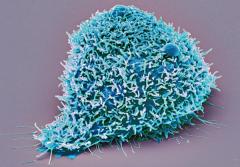
Clinical Trial Data in Relapsed/Refractory Renal Cell Carcinoma
Experts Matthew Campbell, MD, MS, and Brian Rini, MD, provide a brief review of recent clinical data in the setting of relapsed/refractory renal cell carcinoma.
Episodes in this series

Transcript:
Brian I. Rini, MD: Let’s transition to talk about refractory treatment…and switching between the doublets. If you have an ipilimumab-nivolumab progressor, are you giving a single-agent TKI [tyrosine kinase inhibitor] or are you giving an I/O [immuno-oncology]–TKI doublet?
Matthew T. Campbell, MD, MS: It’s a great question. We participated in Study 111, in which patients got lenvatinib-pembrolizumab in the second- or third-line setting, and the progression-free survival was around 11.5 months. Patients had a good treatment experience on ipilimumab-nivolumab until their cancer grew and did not have major toxicity. That approach is more appealing than a patient who had major toxicity with their maintenance phase of nivolumab. If patients had cabozantinib-nivolumab as frontline therapy, there are times when I’ll discuss lenvatinib-pembrolizumab as a second-line option. I’ll often still use single-agent cabozantinib or a combination of lenvatinib plus everolimus in a later-line setting and not pair it with I/O. The studies that we have ongoing—like the CONTACT-03 trial, which is cabozantinib with or without atezolizumab—will be helpful. We’re interested in seeing those data, as well as other studies comparing continuing I/O or not. I don’t think we have the answer to know if patients benefit from continuation on I/O after initial progression on I/O.
Brian I. Rini, MD: I agree. Single-agent TKI is the unexciting standard in that setting, but those trials with nivolumab too will provide insight. The practice is all over the map. The lenvatinib-pembrolizumab data in that setting is pretty impressive, but they’re single-arm data. I’m a believer that we need randomized data because we’ve been fooled with single-arm data before.
Transcript edited for clarity.
Newsletter
Stay up to date on recent advances in the multidisciplinary approach to cancer.










































